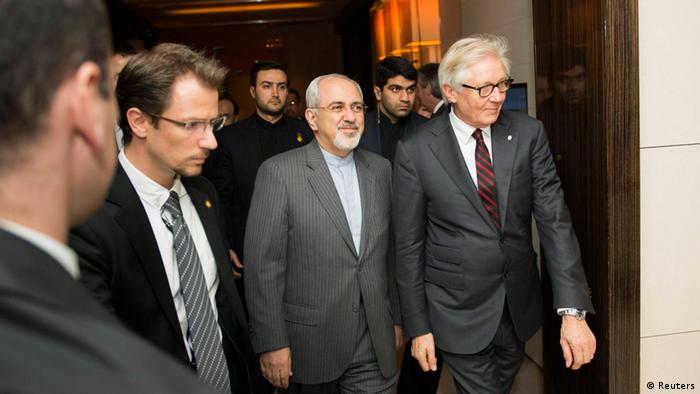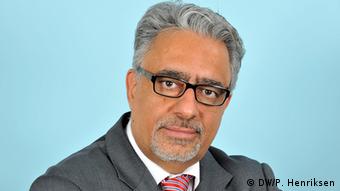Opinion: Light at the end of a long tunnel
The Geneva nuclear talks, the second round since Iranian President Rouhani's inauguration, have ended without a concrete agreement. The Islamic Republic wasn't responsible this time around, writes DW's Jamsheed Faroughi.
It is certainly not new for nuclear talks with Iran to end without any resolution. But it is new that the responsibility lay not with Iran. This time around the Islamic Republic was willing to compromise, far from its role of "poor sport" to which the West is by now quite well accustomed.
How are we to understand this shift in stance? Is Iran no longer a country set on producing negative headlines? Is it no longer the diplomatic island it was under the direction of President Mahmoud Ahmadinejad?
If this is the case, it began in June with the country's presidential elections. Since the inauguration of Hassan Rouhani, positive signals have been emanating from Tehran. This was impetus enough for the international community to enter the Geneva talks with a fresh sense of confidence. But that's only half the truth.
Reins in Khamenei's hands
There's no doubt that Ayatollah Khamenei, the Supreme Leader of the Islamic Revolution, has the last say, and that any change in course would be unthinkable without his approval. He was the sole force behind Iran's nuclear stance - and not his marionette, Ahmadinejad. So why the new path with the new president?
From Tehran's perspective, the answer is relatively simple: The sanctions on Iran's oil and gas exports, as well as its de facto exclusion from the international financial system, are apparently having the desired effect. Sanctions only work when they hurt; quite clearly, these have done significant damage.
Iran's oil business has shrunk drastically. Revenue is down at least 50 percent, with a low coming in 2012 showing a loss of some 30 billion euros. What's worse, Tehran's finances in 2013 look even more critical.
Time of the essence
The economic consequences of the export sanctions - for a country that gets some 70 percent of its income from oil and gas - have brought about a dramatic devaluation of the currency and a staggering rise in inflation. This has led to further unemployment, as well as discontent in a society already swelling with a desire for social action.
Taken together, this was apparently enough to force a change of course in Iran. The Islamic Republic had been accustomed to protracting talks in the seemingly endless nuclear dispute. Now, the powers that be have been forced to realize that time is working against them; for a diplomatic solution, time is not endless.
We all have to realize, however, that an agreement in the nuclear talks with Iran would be extremely important for a peaceful end to the conflict. This would be the true win-win solution, a benefit to all parties involved.
The chief negotiators of the 5+1 Group (permanent UN Security Council members plus Germany) and the Islamic Republic have the duty of progressing towards a resolution. These talks are only a first step, a shimmer of light at the end of a long and dangerous tunnel.
Of course, not everybody is pleased by the convergence between the West and Iran. The opponents of any resolution between the two are numerous and ubiquitous, and also in Iran. We shouldn't forget this.
There have in deed been winds of change blowing ever since Iran's presidential elections. But we should still heed the opposing forces in the country; the current silence from Iran's ultra conservatives should not be construed as any endorsement. Any unnecessary hesitation at this point will only reinforce the hardliners. And not only in Iran.
Without a doubt, the real work begins now. dw de



No comments:
Post a Comment